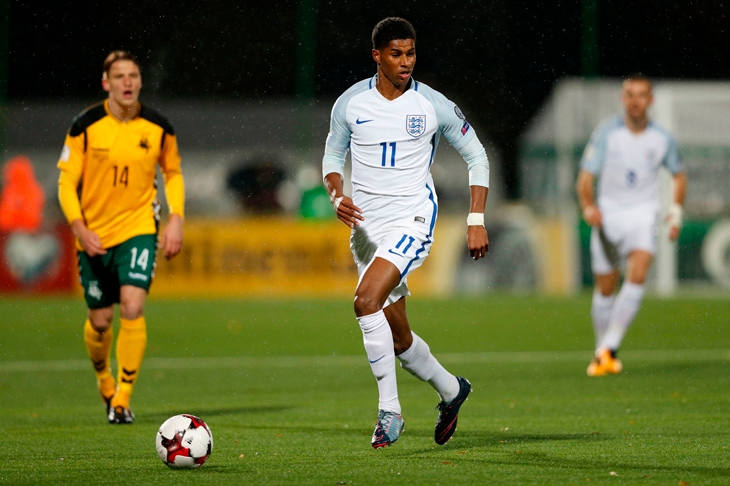During a riveting session at the Cheltenham Literary Festival with sporting brainboxes Mike Brearley and Matthew Syed, discussion touched on the Ringelmann effect. This is the tendency for members of a group to perform less well together than individually. Old Ringelmann observed it in tug-of-war in the early 20th century. On their own the athletes pulled a big weight. In a team they grunted, grimaced but didn’t pull so much. They were skiving; sheltering behind teammates.
You can bet Ringelmann would be rubbing his hands over the state of the England football team. After a seemingly interminable World Cup qualifying campaign full of the dreariest football imaginable, England flopped across the line for Russia. Victory over Slovenia came in the last minute with a scuffed kick from Harry Kane. This was met with paper planes and bored or departing fans. But it’s the World Cup, for heaven’s sake. Why can’t more people get more excited?
Partly it is the sheer length of this stuff: the fragmentation of Europe has given a load of micro-statelets a qualifying place. England could be drawn against Tierra del Fuego, Chad and the Moon and still just qualify with a chain of dreary 1-0 wins. But many are good players with their clubs. Young Marcus Rashford, once hailed as the future of Manchester United, is a central part of the England set-up. But can he deliver? At Cheltenham an anguished fan pointed out that Rashford had delivered four lamentable corners to the near post against Slovenia but no one on the field had given him the bollocking he deserved. Where were the Shearers or the Bryan Robsons who wouldn’t stand for this rubbish?
When England players pull on the shirt they seem to shrink; in other countries the players seem to grow. Look at Northern Ireland, a very moderate side indeed but now in the play-offs. And the Republic, beating Wales in front of ecstatic fans in Cardiff with even Roy Keane, sporting one of his overnight beards, smiling. But England’s qualification has been like all the others — a stream of dross fixtures and dross performances.
Even though England might only be as good as Stoke City, and Northern Ireland only as good as Derby County, and no national team in the world could probably ever win the Champions League, it is still the World Cup and for countries which don’t have mega-billion leagues, it means so much. To see how much, watch Costa Rica’s equalising goal against Honduras in the fifth minute of added time to win a passage to Russia, or Egypt’s commentator barely able to speak through tears as Liverpool’s Mo Salah scored in the last minute to put them through. Iceland, with a population the size of Nottingham, have thrilled all neutrals with the best World Cup qualifying story in decades. They finished above Turkey, Croatia and Ukraine. Could England have done that?
Sure, our players are good, but maybe just not that good. The top Premier League teams do not revolve around their England players, apart from Spurs. England lack a play-maker, though the Premier League has many great ones from overseas: Mata, Ozil, Coutinho or Hazard. There are no England names to match those. We have a team of 11 very good players, but so do a lot of other teams. The most successful sides have seven or eight very good players and then three or four outstanding ones. England have no outstanding ones who seem confident or good enough to take the ball forward at speed and take on defenders. As a result, England pass the ball sideways or backwards but are pretty unconvincing going forward. Gareth Southgate seems a decent fellow, much liked by all, but is he a big or forceful enough character to motivate an international team? Don’t hold your breath.







Comments